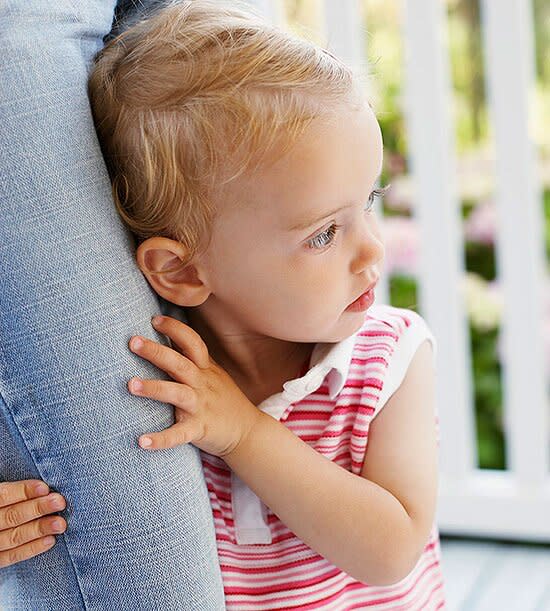"Mommy Don't Go!"

Fancy Photography/Veer
Even as your child is growing more adept at interacting with you, she is also learning about getting along with others. She may continue to be wary of strangers up to about 18 months, especially during clingy phases that happen periodically, although no one is quite sure why. Even relatives she doesn't often see come under the heading of "strangers." Still, it isn't always accurate to think of this as stranger anxiety. More often, it's concern over being without you.
One-year-olds take their social cues from people they trust -- you especially. Your child is quick to pick up on the difference between your reaction upon running into a friend and your response to strangers on the street. When you feel comfortable interacting with someone else, he'll feel that way too. Remember, though, that sociability is a highly personal trait. Your child's enthusiasm for others may be less or greater than your own. This is something that won't change very much as she gets older, though the skills with which she expresses this enthusiasm will mature. Keep your child's temperament in mind when thinking about her social interactions with others. Try to structure these situations to help her get the most out of them. A shy child should never be forced to greet or play with anyone with whom she isn't comfortable, for example. A slow-to-warm-up child needs to know that she can initiate social contact at her own pace, while a more outgoing 1-year-old may be happiest when she has lots of opportunities to be with others.